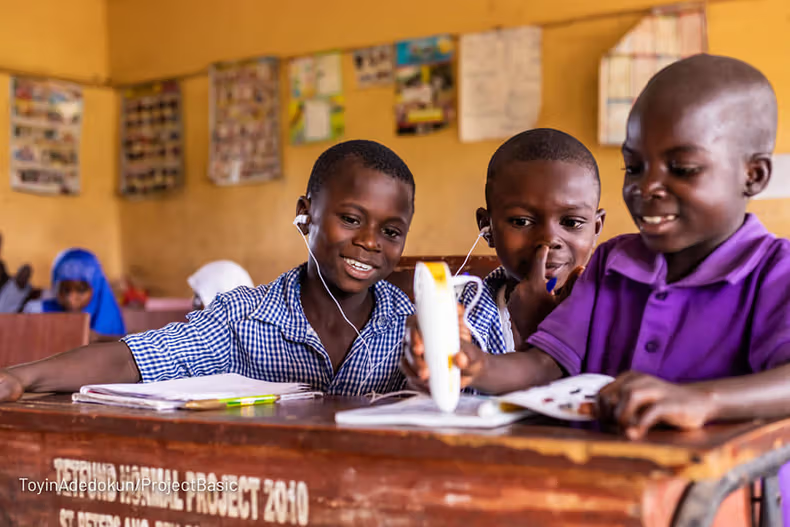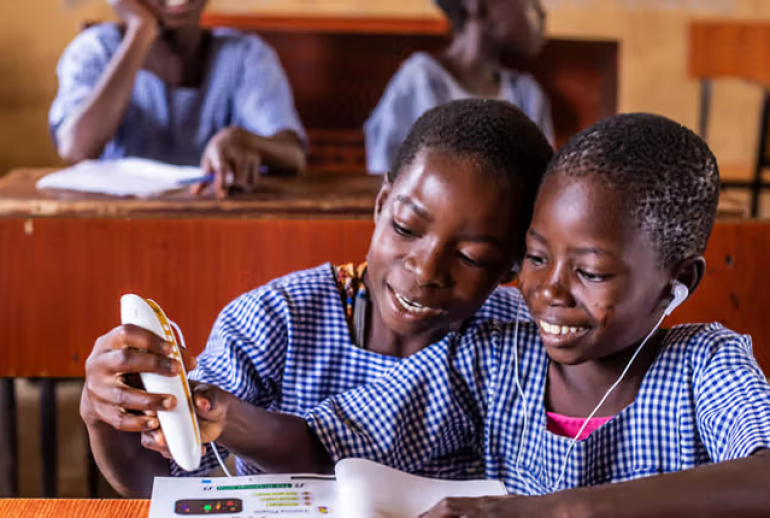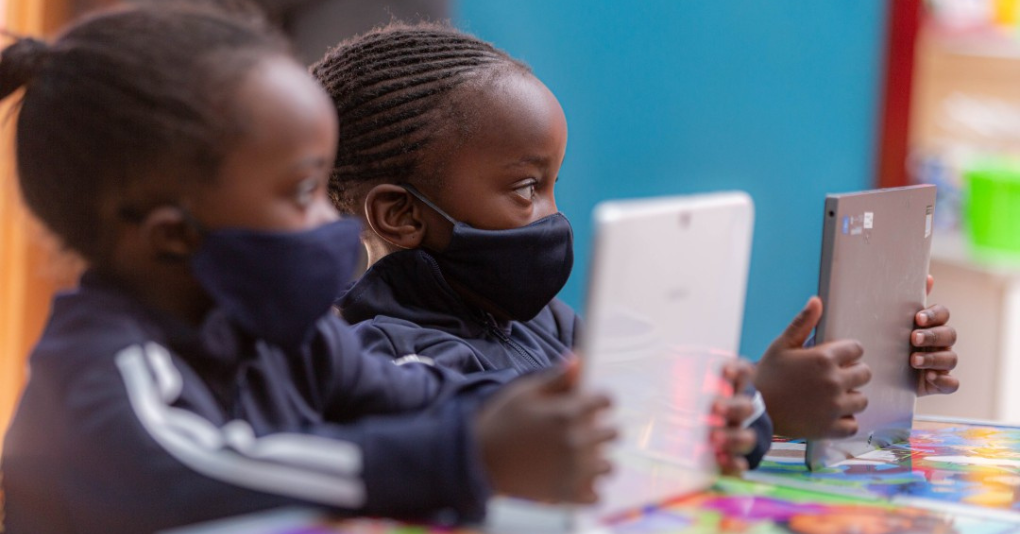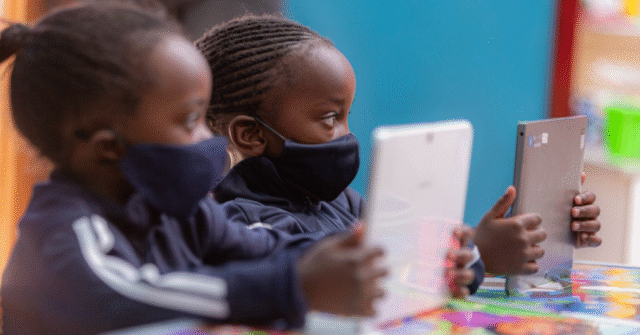Imagine a classroom in rural Nigeria where the power often plays hide-and-seek, and internet access is but a distant dream. Now picture students tapping into rich, engaging educational content downloaded onto SD cards, tablets, or local servers. Welcome to the most exciting revolution in Nigeria’s rural education: offline-first apps.
These digital solutions are rewriting how learning happens in places where connectivity is patchy and budgets are tight. Platforms like uLesson pioneered by preloading secondary school lessons onto SD cards and customised Android tablets, so students could learn even when there was no data network around. Similarly, the Kolibri platform has been adopted in parts of Nigeria—including conflict-affected areas like Borno State and internally displaced persons (IDP) camps—providing interactive lessons in local languages without needing internet.
Other grassroots efforts include TabSchool, whose offline learning kits run solar-powered tablets loaded with local curriculum materials, deployed in schools across Kaduna, Plateau, and Benue States. Then there’s the Rumie Initiative, which brought “LearnPads” (offline tablets) to Northern Nigeria, focusing on helping girls gain access to educational resources in places where school attendance is low.
Underpinning all of this is the idea that learning doesn’t always need Wi-Fi. All it needs is a thoughtful blend of technology and local relevance.

Table of Contents
What Makes Offline-First Solutions Work—and Why They’re Critical
Let’s face it: Nigeria’s rural schools battle major hurdles—erratic power, limited funds, and nearly non-existent broadband. A study on the challenges of e-learning in the country highlights how flawed budget allocations, unreliable electricity, and poor infrastructure cripple digital learning efforts. Offline-first tools deftly navigate around these challenges:
- Local access to content: Instead of streaming lessons live, students tap into preloaded materials—lessons, quizzes, science videos—without using data. This cuts reliance on shaky internet and saves on data costs.
- Power resilience: Many kits are solar-powered (like TabSchool’s), or run on low-power devices, keeping lessons going even when the grid pauses.
- Cultural and linguistic fit: Mobile literacy apps teaching in Hausa, Igbo, Yoruba, and other local tongues are proving more effective than English-only tools. For instance, local-language story apps like Teesas and African Storybook have captured imaginations across rural communities by giving children access to stories they can truly relate to.
Beyond hardware, success depends on training the people on the ground. When teachers understand how to integrate these tools, classrooms transform. Offline apps flourish when educators see their value and are given guidance to use them well.

From Innovation to Impact: Narratives from the Field
Let’s put faces and stories to these programmes, because numbers alone don’t tell the full picture.
Take Uchechi Unamma, a grassroots education advocate who, in early 2023, launched a low-tech digital readiness initiative in Imo State. It wasn’t about flashy gadgets or nationwide connectivity—it was, as she puts it, “an offline-first approach to digital readiness,” building on what was already in classrooms and communities to kickstart learning in a way that actually made sense locally
In Borno State’s IDP camps, displaced children found a lifeline through Kolibri, now loaded with lessons translated into Hausa and Kanuri. This kind of inclusive, context-aware deployment helped restore learning continuity where schools were disrupted.
Then there’s African Storybook, which allows children to read and create stories offline on Android tablets. Highly innovative, it lets schools store storybooks directly on devices and even print them. The African Storybook Maker app empowers students, teachers, and community members to craft their own stories—bridging literacy and creativity in mother tongues.
These stories affirm something powerful: offline-first EdTech doesn’t just deliver content—it empowers hope.

Scaling Up: From Pilot Projects to Nationwide Transformation
Offline-first EdTech in Nigeria is no longer just a pilot novelty—it’s building momentum toward scalable change.
Mobile literacy apps like Teesas, aligned with the national curriculum and offering multiple Nigerian languages, show how scalable solutions can be rooted in context.
Similarly, strategic plans are emerging. One vision proposes AI-powered solar learning hubs—community centres with tablets, smartboards, and synced offline content, all powered by solar microgrids. Add device-financing schemes for families and zero-rated educational data plans, and what emerges is a powerful foundation for widespread offline learning.
Of course, challenges persist—device affordability, teacher training, local buy-in, and sustainability. But with thoughtful partnerships (like those between NGOs, EdTech firms, telecoms, and government), and by equipping local “digital learning ambassadors,” these models can multiply across states, transforming rural education from the ground up.
Join Our Social Media Channels:
WhatsApp: NaijaEyes
Facebook: NaijaEyes
Twitter: NaijaEyes
Instagram: NaijaEyes
TikTok: NaijaEyes
READ THE LATEST EDUCATION NEWS





